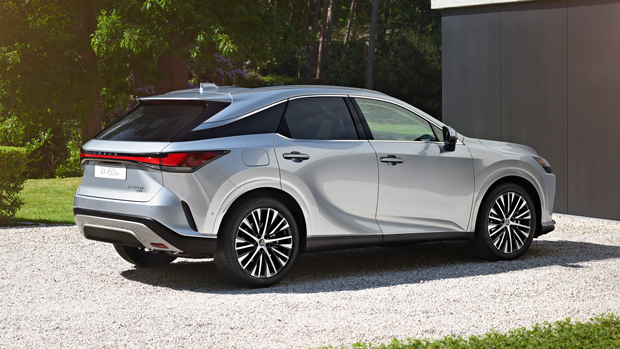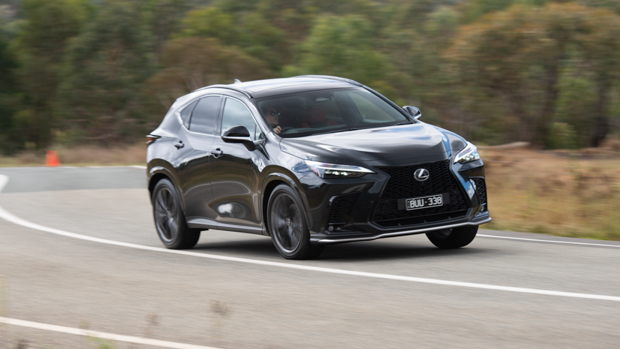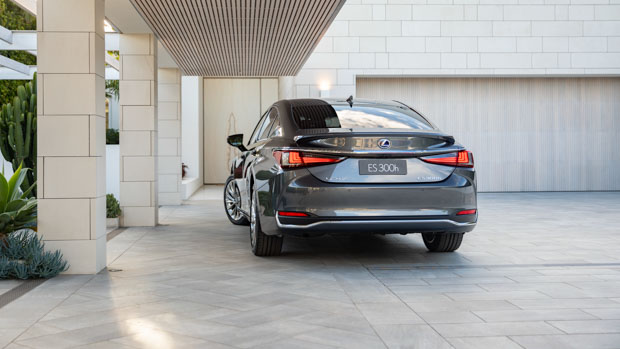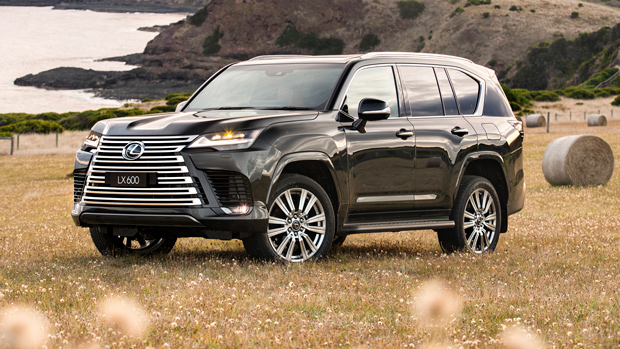-
Car Reviews
- All reviews
- Midsize SUVs
- Small cars
- Utes
- Small SUVs
- Large SUVs
- Large cars
- Sports SUVs
- Sports cars
- Vans
Latest reviews
- Car News
-
Car Comparisons
Latest comparisons
- Chasing Deals
Next year’s renewed Lexus RX crossover will prioritise hybrid engines, but the non-electrified RX350 is still expected to account for 35 percent of sales
Luxury carmaker Lexus is contemplating the question of when it should discontinue petrol-only engines in its various model lines as the share of customers preferring hybrid powertrains grows at a rapid rate.
Lexus Australia managing director John Pappas told Chasing Cars this week that one sign that the brand should drop petrol-only engines is where they have fallen to around 10 percent of a given model’s sales balance.
“If it was 10 percent or less, you’d start really working out that people are speaking. … If that was to become true, then you’d definitely be questioning the future line-up in terms of petrol [engines], for sure,” said Pappas.
Just under 50 percent of all Lexus sales in Australia are vehicles with hybrid engines, but this number is artificially held down by supply constraints that particularly hybrid cars because of their higher consumption of semiconductors, of which there is presently a significant shortage.
Pappas told Chasing Cars that if supply was as-normal, Lexus hybrid sales in Australia would already be hitting around 60 percent of the total. Despite supply challenges, the share of hybrid sales for Lexus in Australia is growing at pace. In 2020, hybrids made up 33 percent of local sales.
Looking to Lexus’s order banks provides strong clues as to what customers want to buy, supply aside. Around 75 percent of Australian orders for the company’s in-demand NX midsize SUV are for either the NX350h series-parallel hybrid (from $65,600), or the more NX450h+ plug-in hybrid ($88,323), with the top-tier PHEV accounting for 12 percent of NX orders alone.
Despite the significant and accelerating shift in Australian buyer preferences towards hybrid powertrains, Lexus has retained ‘legacy’ petrol-only, non-hybrid engines for traditional buyers who are “not ready” to own an electrified vehicle, in Pappas’s language.
Chasing Cars has driven the next-generation RX large SUV that is set to arrive in Australia in early 2023 – with reviews coming shortly – and while the new model’s base powertrain will now be the RX350h hybrid, a non-hybrid RX350 petrol engine will remain available. Pappas expects this turbocharged four-cylinder RX350 to account for 35 percent of sales.
But where the smaller NX midsize SUV – a vehicle with a typically younger buyer demographic – is concerned, just 1 in 4 Australian customers is placing an order with a Lexus dealer for a non-electrified, petrol-only engine.
However, the actual sales proportion of non-hybrid NX engines is richer than 25 percent because their subdued popularity means wait times are shorter.
Lexus public relations spokesperson Paul Ellis told Chasing Cars that a petrol NX buyer could expect to wait around six months for delivery, compared to more than 12 months for a hybrid.
Pappas argues that despite the clear shift in buyer patterns in favour of hybrid engines, there is still a solid foundation of customers in Australia that prefer traditional petrol engines.
“There are enough customers speaking and saying that [keeping the] petrol is a good, viable option for [the new RX]…in time, that will evolve in terms of customers moving more to electrified once they understand more about the only the technology, but [for plug-in hybrid,] they are more confident in the infrastructure,” said Pappas.
Part of the story is the older skew of buyers for the RX model, which itself has historically high loyalty and retention rates for Lexus in Australia, though Pappas is bullish that the new-gen car will attract younger family customers – being similar customers to hybrid-loving NX buyers.
Lexus’s ES midsize sedan was hybrid-only in Australia between 2019-2020, but a price-leading non-hybrid ES250 engine was added to the lineup in 2021. Hybrid power is an extra-cost option on the brand’s UX small SUV and NX midsize SUV, as well as the LS limousine.
Perhaps the last Lexus model to go hybrid-only in Australia will be the LX four-wheel drive. Lexus parent company Toyota has committed to having a hybrid powertrain for every model in its Australian lineup in 2030, and a petrol-electric V6 hybrid engine is already available in North America with Toyota models that share the LX’s GA-F platform.
The fifth-generation RX will be released in Australia in the first quarter of 2023 with two hybrid powertrains – the non-turbo RX350h and turbo RX500h – plus the non-hybrid, turbo RX350.
Latest news
About Chasing cars
Chasing Cars reviews are 100% independent.
Because we are powered by Budget Direct Insurance, we don’t receive advertising or sales revenue from car manufacturers.
We’re truly independent – giving you Australia’s best car reviews.



